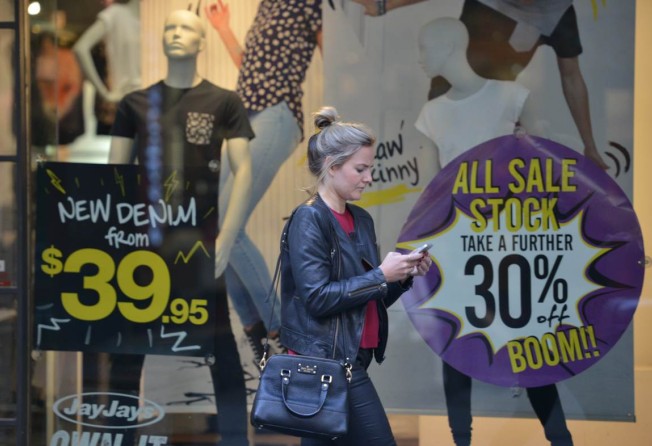Australian consumer sentiment strong, but wages at 16-year lows

A measure of Australian consumer sentiment rose strongly this month as households grew more optimistic on the near-term economic outlook and worried less about their finances, even as wage growth stayed stuck at 16-year lows.
The survey of 1,200 people by the Melbourne Institute and Westpac Bank showed the index of consumer sentiment rose a seasonally adjusted 3.8 per cent in August, from July when it had gained 1.9 per cent.
"The rebound in confidence augurs well for a continuation of the lift in retail sales reported for June, which followed three consecutive soft months," said Westpac chief economist Bill Evans.
The survey found more respondents believed it was a good time to splash out on a major household item, while the appetite to buy a new home improved sharply.
The largest improvement in August came in the survey's measure of family finances, followed by the outlook for the economy over the year ahead. That was a resilient outcome after unemployment spiked to 6.4 per cent in July, well above forecasts and the highest reading in 12 years.
Likely helping has been a double-digit appreciation in home prices over the past year, which the Australian Bureau of Statistics estimates has added A$492 billion (HK$3.53 trillion) to the value of housing stock.
However, some analysts worry consumers will struggle after official figures yesterday showed wages grew just 2.6 per cent in the year to June, failing to even keep up with inflation of 3 per cent.
Wage growth in the private sector slowed to 2.4 per cent, the lowest since the series began in 1997.
Scott Haslem, chief economist at UBS, said "ongoing record low wages growth means that people are going to have to start saving less to achieve our forecast of a moderate rise in consumption".